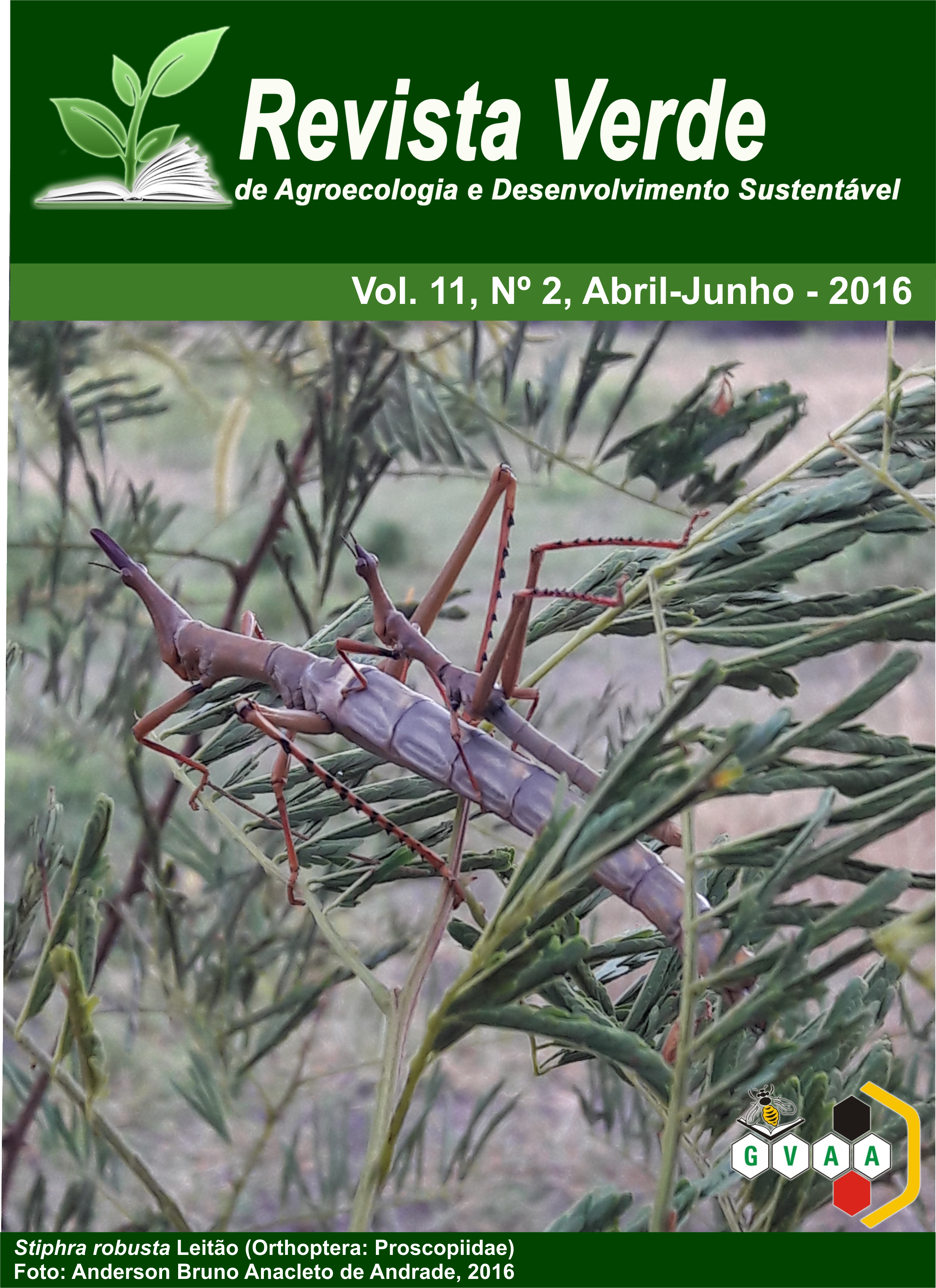Crescimento de plântulas de alface (Lactuca sativa L.) em solo oriundo de um povoamento de Luetzelburgia auriculata (Allemão) Ducke
DOI:
https://doi.org/10.18378/rvads.v11i2.4260Palabras clave:
fertilidade do solo, alelopatia, área foliar, desenvolvimento vegetal.Resumen
Esta pesquisa buscou conhecer características alelopáticas e de fertilidade de um solo oriundo de povoamento de Luetzelburgia auriculata (Allemão) Ducke), através da avaliação do crescimento de plantas de alface. Inicialmente, realizou-se a coleta do solo sob o povoamento da L. auriculata (SPL) e de uma área externa a esse povoamento (SAE), na Fazenda Cachoeira de São Porfírio, em Várzea-PB, e encaminhou-se para o Centro de Saúde e Tecnologia Rural da Universidade Federal de Campina Grande, Campus de Patos. Em delineamento inteiramente casualizado, aplicaram-se cinco tratamentos com cinco repetições, colocando-se três sementes de alface por vaso contendo os seguintes tratamentos: T1=100%SAE; T2=100%SPL; T3=75%SPL; T4=50%SPL e T5=25%SPL. Aos 63 dias da semeadura, realizou-se a colheita e mensuraram-se as variáveis: comprimento da parte aérea, da raiz, peso da massa fresca da parte aérea, área foliar e número de folhas de cada indivíduo e a análise química dos substratos. Aplicou-se a ANOVA e o teste de Tukey a 5% de probabilidade. O solo do povoamento da L. auriculata (SPL) apresentou uma maior quantidade de nutrientes em relação ao solo da área externa ao povoamento (SAE) e influenciou positivamente no crescimento das plantas de alface. No entanto, em apenas três dos cinco tratamentos aplicados (T1, T2 e T3), a alface se desenvolveu. Em T1, T2 e T3 as variáveis analisadas diferiram estatisticamente em função da origem dos solos utilizados e da proporção do esterco bovino. O solo oriundo do povoamento de L. auriculata não apresentou efeito alelopático sobre os parâmetros de crescimento da alface.
Seedling growth lettuce (Lactuca sativa L.) in soil arising out of a settlement Luetzelburgia auriculata (Allemão) Ducke
Abstract: This research aimed to know allelopathic characteristics and fertility of the soil arising out settlement Luetzelburgia auriculata (Allemão) Ducke by assessing the growth of lettuce plants. Initially, there was the collection of the soil under the settlement of L. auriculata (SSL) and an outdoor area to this settlement (AOS), the Cachoeira de São Porfírio Farm, in Várzea-PB, and walked to the Center for Health and Rural Technology at Federal University of Campina Grande, Campus of Patos. In a completely randomized design , applied to five treatments with five repetitions , placing three lettuce seeds per pot with the following treatments: T1=100%AOS; T2=100% SSL; T3=75% SSL, T4=50% SSL and T5=25% SSL. After 63 days of sowing, held the harvest and the variables measured: shoot length, root, fresh weight of shoot weight, leaf area and leaf number of each individual and the analysis chemical substrates. Applied to ANOVA and Tukey's test at 5% probability. The soil settlement of L. auriculata (SSL) showed a greater amount of nutrients from the ground of the area outside the settlement (AOS) and positively influenced the growth of lettuce plants. However, only three of the five treatments applied (T1, T2 and T3), lettuce developed. In T1 , T2 and T3 variables analyzed differed significantly depending on the soil origin used and the proportion of cattle manure. The soil arising from population of L. auriculata showed no allelopathic effect on lettuce growth parameters.











